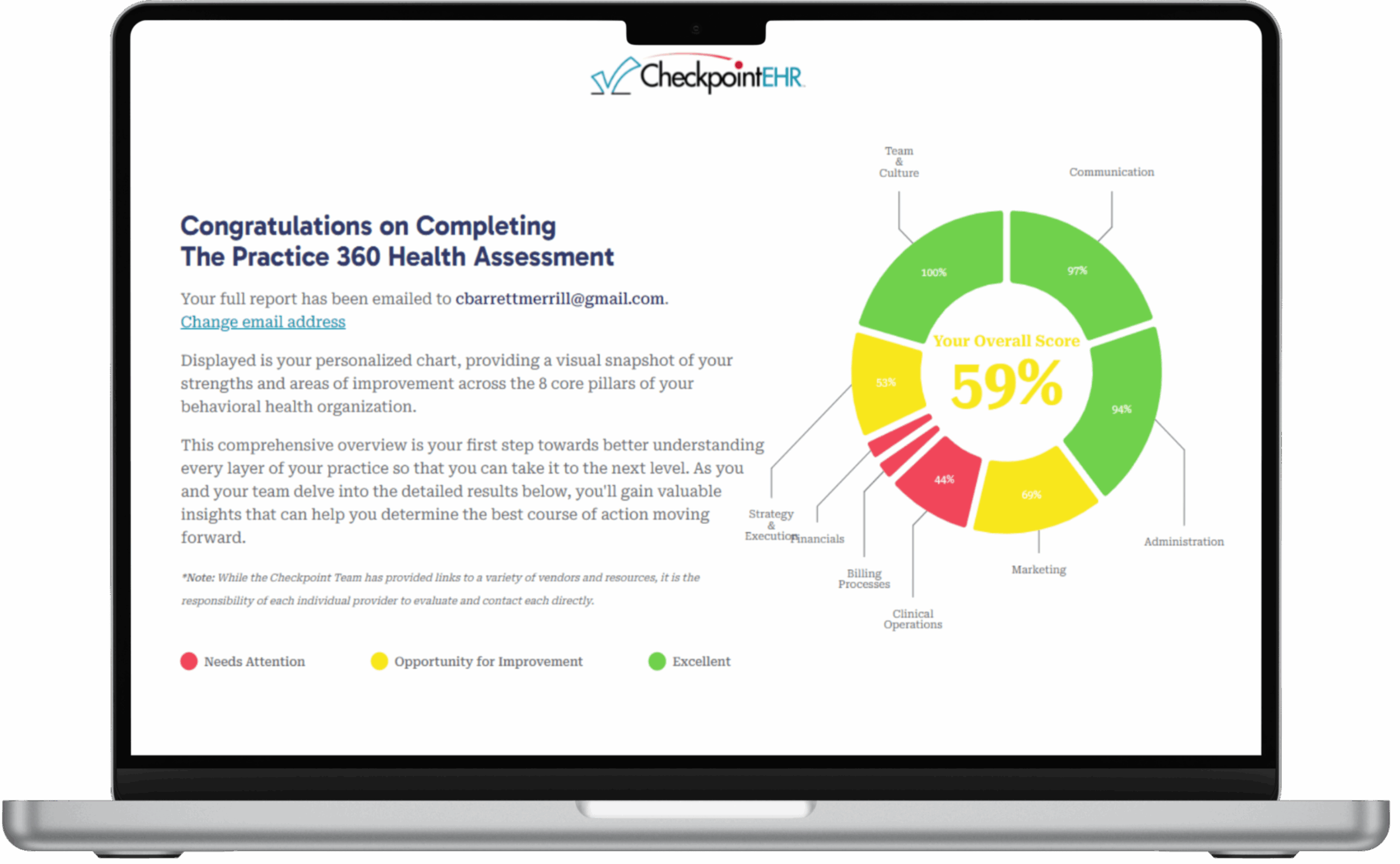Common Reasons Claims Are Rejected or Denied by Medicaid

For behavioral health providers accepting Medicaid, claims rejection and denial can be an overwhelming and time-consuming challenge. Frequent claim denials impact not only revenue but also the administrative workload. By understanding the common reasons for these issues and knowing how to effectively address and prevent them, providers can maintain a smoother billing process and ensure timely reimbursement.
Here are some of the most common reasons behavioral health claims are rejected or denied by Medicaid, along with practical solutions and preventive strategies:
(Confused about the difference between a claims rejection and denial? This article will help!)
1. Missing or Incorrect Client Information
Cause: Medicaid claims are often rejected due to missing or inaccurate client information, such as names, birthdates, Medicaid ID numbers, or insurance details. Even a small typographical error can trigger a rejection.
Solution: Review each client’s information at intake and confirm its accuracy. Implement a double-check system where the intake staff and billing team verify the details before submitting claims.
Prevention: Establish standard operating procedures (SOPs) to verify client information against Medicaid records, reducing human error. By implementing a process for data verification, your team can prevent small but costly errors before they happen.
2. Lack of Prior Authorization
Cause: Many behavioral health services require prior authorization from Medicaid before treatment begins. Claims submitted without authorization documentation or before authorization approval are typically denied.
Solution: Track the prior authorization requirements for each service provided. If a claim is denied for lack of authorization, work with the Medicaid representative to resubmit it with the necessary documentation.
Prevention: Ensure that your EHR and billing system tracks authorization requirements by service type. Set up reminders for staff to secure prior authorization and confirm its approval before proceeding with any treatment, especially for services like intensive outpatient programs (IOPs) and specialized therapies.
3. Incorrect Billing Codes
Cause: Medicaid frequently updates its billing codes and coding requirements, and using an incorrect or outdated code can lead to immediate rejection. Mental health billing is especially prone to issues with Current Procedural Terminology (CPT) codes, diagnostic codes, and modifiers.
Solution: Check the coding on each claim for accuracy and ensure it reflects the latest Medicaid guidelines. If a claim is rejected due to incorrect coding, correct the code and resubmit the claim.
Prevention: Regularly update your billing software with the latest Medicaid codes. Offer regular training to staff on coding changes, and utilize an EHR that automatically suggests the correct billing codes based on the treatment type, making it easier to submit accurate claims.
4. Non-Covered Services
Cause: Not all behavioral health services are covered by Medicaid, and claims for services outside the plan’s coverage scope are typically denied. Coverage limitations may apply to certain types of therapy, frequency of visits, or provider types.
Solution: If a claim is denied due to a non-covered service, verify the reason with Medicaid. Often, claims can be reworked by adjusting the coding or aligning the service description with Medicaid guidelines. Consider finding alternative service options that are covered under the client’s plan.
Prevention: At intake, verify each client’s Medicaid plan and coverage specifics. Make it a point to check coverage for each type of service you provide so that you can communicate any limitations to the client before treatment begins. By establishing a system to flag non-covered services based on plan-specific rules, your team can avoid claims that Medicaid won’t reimburse.
5. Timely Filing Issues
Cause: Medicaid has strict filing deadlines, and claims submitted outside these windows are often automatically denied. Timeframes vary by state, but they are generally within a few months of the service date.
Solution: When a claim is denied for timely filing, it’s important to appeal as quickly as possible, providing supporting documentation to explain any delays (e.g., changes in client eligibility). Each state’s Medicaid program may have different appeal processes.
Prevention: Track Medicaid deadlines in the billing systems and processes you’ve established at your practice to prioritize submission of claims within a few days of the service date. Set up a series of reminders for upcoming deadlines and batch claim submissions to streamline this process and prevent missed windows.
6. Eligibility Verification Failures
Cause: Clients’ Medicaid eligibility status can change frequently, and if coverage is inactive or doesn’t match the date of service, claims are denied. This often happens when eligibility lapses between appointments.
Solution: Contact the client and work with Medicaid to verify eligibility and, if necessary, update coverage. Once verified, resubmit the claim with the appropriate documentation.
Prevention: Verify Medicaid eligibility on the day of each appointment. Establish a system for eligibility verification to review internally and alert your team of any status changes before treatment occurs. By staying proactive, you can avoid performing services that Medicaid won’t cover.
For behavioral health providers, Medicaid claim denials can be a major financial and administrative burden. But by addressing the root causes—such as inaccurate client information, lack of authorization, incorrect billing codes, non-covered services, filing delays, and eligibility verification failures—providers can enhance their revenue cycle and reduce administrative stress. Implementing a robust EHR system with features that limit the opportunity for human error while increasing claim acceptance rates can make all the difference. By combining proactive measures with a solid understanding of Medicaid requirements, you can reduce claims rejections and denials, transform your claims process, and optimize financial stability for your practice.
Looking to evaluate a new EHR system for your Medicaid- and Insurance-based practice? CheckpointEHR helps 1000s of behavioral health providers across the US with streamlining billing and claim submission processes. Learn more and book a demo today!
Up Next… Article #9 in our Medicaid Blog Series: What Does Medicaid Cover (and not Cover) in Behavioral Health?



